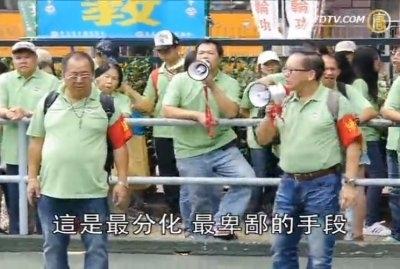
A Hong Kong group with deep ties to China’s domestic security apparatus and the notorious 6-10 Office has recently made attempts to extend the Chinese regime’s persecution of the Falun Gong meditation and exercise discipline to the Hong Kong territory. A spokesperson for concerned citizens says the Chinese regime is systemically eroding democracy and civil rights in Hong Kong by targeting the Falun Gong first.
Practitioners of Falun Gong have been standing outside Hong Kong’s Hung Hom Station nearly every day for the past decade. They have been telling tourists from the mainland about illegal imprisonment, torture, forced organ harvesting, and disinformation their group has been subjected to in China for the past 13 years. This familiar scene has drastically changed during the past few months.
Tourists are now greeted by people clad in green uniforms, members of a newly formed communist-backed “youth group,” who verbally, and sometimes physically, assault the peaceful Falun Gong protesters, using loudhailers and waving banners bearing slogans that slander Falun Gong. Some of them have admitted that they are being paid to participate in these activities.
Their words and slogans are uncannily similar to those used in China’s prisons, forced labor camps, and brainwashing centers against Falun Gong, according to Falun Gong sources.
Paid to Persecute
The first of a string of incidents at Hung Hom Station was on June 10, when members of the Hong Kong Youth Care Association (HKYCA) besieged the Falun Gong information site.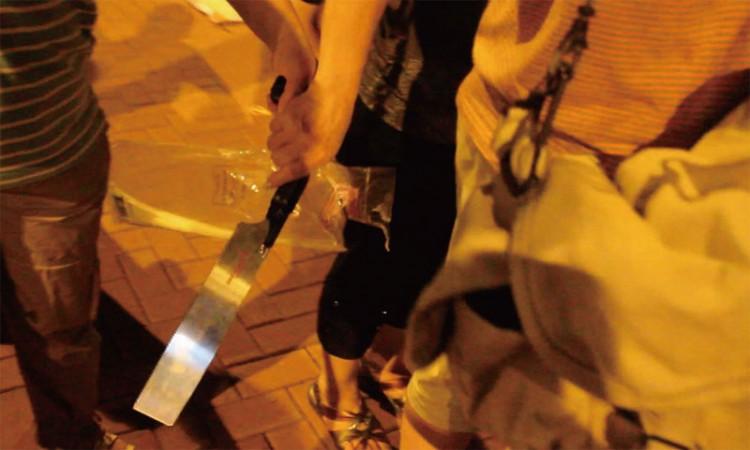
In the past six months, the harassment of Falun Gong practitioners by HKYCA spread to other parts of Hong Kong. On July 4, a female member of the HKYCA brandished a six-inch long chopping knife outside Lok Ma Chau station threatening a reporter of New Tang Dynasty (NTD) Television. NTD is a New York based, mostly Chinese-language station that broadcasts into China via satellite, including news about human rights abuses and the Falun Gong persecution.
The reporter, who was covering the group’s harassment at the Falun Gong information event, cried out for help. But police standing nearby did not respond. The police also never opened an investigation into the incident, according to Falun Gong practitioners.
Cultural Revolution Revisited
Although Hong Kong police has been mostly unresponsive to practitioner’s requests for protection, the waves of HKYCA banners slandering Falun Gong have not only shocked Hong Kong residents, but visitors from mainland China as well.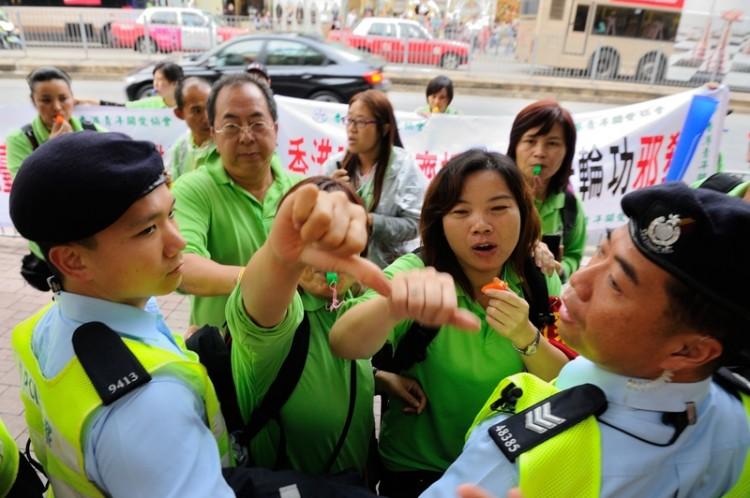
A businessman from Chongqing, who has recently experienced former Chongqing Party chief Bo Xilai’s Maoist-style campaign in that city, told New Epoch Weekly that he was shocked by what he saw on his visit to Hong Kong on Nov. 27 and 28.
“This is reminiscent of the Cultural Revolution,” he said. “In China we don’t even have that many banners with anti-Falun Gong slogans. Hong Kong is supposed to practice the ‘one country, two systems’ policy. Why is this happening here?”
China’s Domestic Security Apparatus
The HKYCA was registered in Hong Kong on June 8, 2012, and began its attacks on Falun Gong on June 10. Intended or not, the date coincides with the establishment of the 6-10 Office, an extralegal, Gestapo-like agency, expressly formed by the Chinese regime in 1999 for handling the persecution of Falun Gong.According to an investigation by the World Organization to Investigate the Persecution of Falun Gong, the HKYCA is a branch agency of the Chinese regime’s 6-10 Office. It is a private organization backed by China’s massive domestic security apparatus, the Political and Legal Affairs Committee (PLAC).
Zeng Qinghong
Willy Lam, an Adjunct Professor of History at the Chinese University of Hong Kong and a regular CNN contributor on China affairs, wrote in a 2004 article that, after the mass protests in Hong Kong against the Article 23 National Security Bill in 2003, the Chinese Communist Party’s Politburo Standing Committee set up a Coordinating Leading Group on Hong Kong Affairs to deal with Special Administrative Region matters. The Leading Group was headed by then Vice State President Zeng Qinghong.Lam said that Zeng was a key advisor to Jiang Zemin, who had also picked Tung Chee-hwa as Hong Kong’s Chief Executive around that time, and that another role of Zeng’s was to preserve Jiang Zemin’s legacy.
The Epoch Times also learned that Leung Chun-ying was handpicked by Zeng as the present Chief Executive of Hong Kong to carry on Jiang’s “legacy,” or in other words, to extend the persecution of Falun Gong from China to Hong Kong.
Democracy Under Attack
Speaking about the HKYCA’s acts, Xiong Li, spokesperson for the Hong Kong Falun Gong Concern Group, said: “They wouldn’t dare to [attack Falun Gong] without the support of the Hong Kong government. It is clear because such incidents have never happened before.”Xiong said the Chinese regime is systemically eroding democracy and civil rights in Hong Kong by targeting Falun Gong first.
“The treatment of Falun Gong today predicts how Hong Kong’s democracy movement will be treated tomorrow. Defending Falun Gong is also defending Hong Kong,” he said.
After Leung assumed office, members of Jiang Zemin’s faction wanted to get the Hong Kong government involved in the persecution of Falun Gong, thereby also implicating the CCP’s new leadership in it, according to NTD’s political commentator Jason Ma.
“This is similar to what happened after Jiang’s successor, Hu Jintao, took office. The persecution continued during Hu’s ten-year tenure,” he said.
Ma added that the Falun Gong issue is a touchstone for Hong Kong’s democracy. If Hong Kong were to lose this touchstone under Leung’s rule, then it would lose one of its main distinguishing traits from the rest of China, followed by the loss of its democracy and freedom.
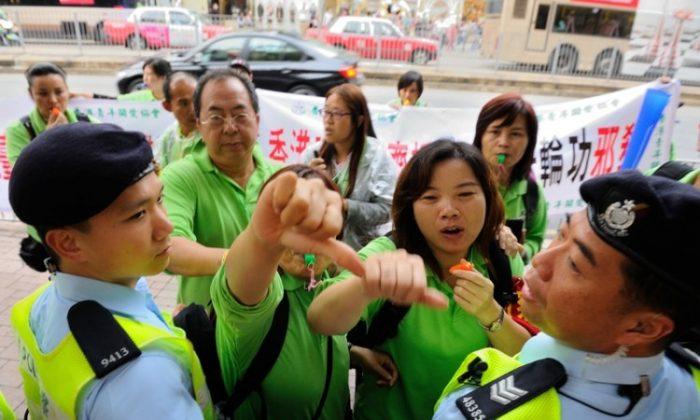
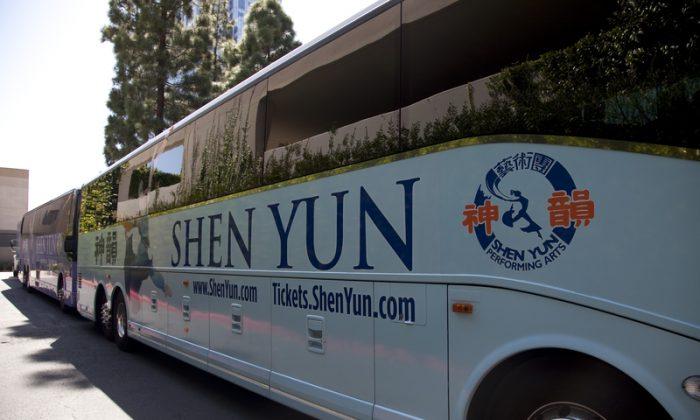

Friends Read Free